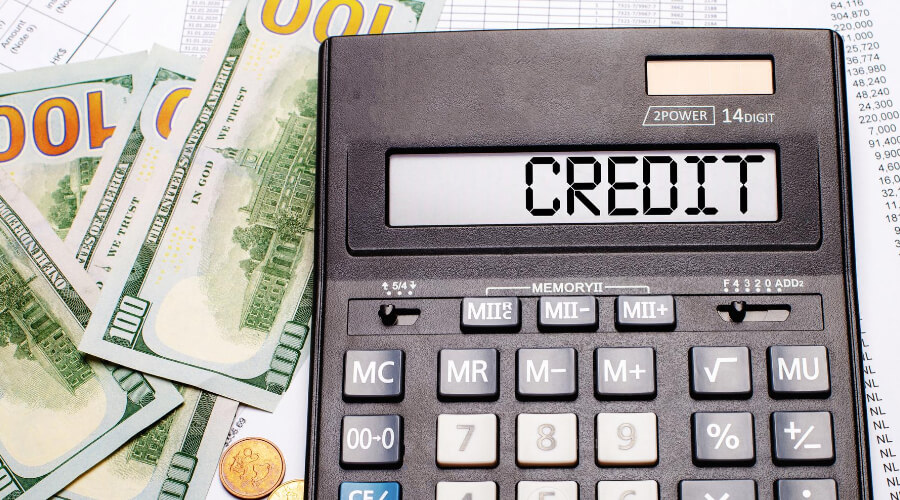There are many ways you can find all the loans against your name. The most convenient way is to check your credit report because a credit report contains all the information about your finance. Every year you can get one Credit report for free. You can visit AnnualCreditReport.com to download your credit report. Finally, check the credit report to find all the loans in your name.
Key Takeaways
- Checking the credit report from all three bureaus is the best way to find all loans in your name
- If there is any incorrect information on your credit report then you should immediately dispute the incorrect information
- Usually, a credit card report includes personal information, a complete list of credit or loan accounts, public records, recent inquiries, etc.
- The Fair Credit Reporting Act (FCRA) limits who can check your credit report
- There are quite a few people or organizations that can check your credit report that includes lenders, landlords, insurers, employers, etc,
How To Find Out All The Loans In Your Name

If you want to know about all your loans then there are several steps you can take. Moreover, if you are worried about existing account fraud and future prevention then checking all your loans will help you a lot. Pull your own credit report and check all the loans against you. Make sure you pull the credit report from all three bureaus—Experian, Equifax, and TransUnion. Now check the report thoroughly to find out information about the loans. Moreover, you can also check for fraud since each report may have different information and reporting.
Once you have collected all three of your credit reports then look over each one in detail. Check every account listed on the report and see if they are all yours. Moreover, also check other details listed on the credit report. If you don’t recognize any loan account then you should report it right away. Besides, if there is any incorrect information then you should also dispute other incorrect information and errors on your credit reports.
What Does A Credit Report Include?

A credit report contains lots of vital information. So, the information that appears on your credit report includes:
1. Personal Information: A credit report contains personal information that includes creditors, birth date, Social Security number, current, and past home addresses, phone numbers, etc.
2. Accounts: In the credit report, you will find a complete list of all your credit/loan accounts that includes credit cards, installment loans, such as mortgages or auto loans, etc. Here you will find information regarding creditor names, account numbers, balances, payment history, account status, etc.
3. Public records: Bankruptcies.
4. Recent inquiries: Information regarding who has asked to view your credit report and when.
Who Can Check Your Credit Report?
The Fair Credit Reporting Act (FCRA) limits who can check your credit report and the reasons why they can check your report. Below are the people and organizations that can view your credit report:
You: The credit report is issued against you; therefore, you are entitled to review the information on your credit report. Checking your own credit report won’t affect your credit score.
Lenders: When you apply for credit from a credit card company, the lender will ask to review your credit report. When loan companies check your credit report they are considered as “hard inquiries.” This type of inquires can affect your credit score.
Landlords: Landlords will ask to check your credit report when you apply to rent an apartment or home. However, landlords must have your permission to check your credit report.
Insurers: The insurance company can ask to check your credit report when you apply for insurance. This is because insurance is a kind of financial account therefore the insurer has the right to check your credit report. However, the insurance company must have your permission to check your credit report.
Employers: Sometimes, employers can ask you to check your credit report in order to make hiring decisions. But employers can’t check your credit report without your written consent.
Other Businesses: Other businesses might want to check your credit report for various purposes. In this type of situation, a business must take permission from you to check the credit report.
How To Report Identity Theft
If you find something unusual on your credit report as an account on your credit reports that don’t belong to you then there is a chance you have become a victim of identity theft. If that is the case then you should take steps to halt the damage right away. If you become a victim of fraud activities then you should call the company where the fraud took place. Explain to the company that someone opened an account in your name and that they are trying to steal your identity. Tell the company to close or freeze the account so no further damage can happen to your credit score. Moreover, you should change the logins and passwords on all your other online accounts as a security measure. You should place a fraud alert on your credit reports to prevent any further fraud activities. You can place a fraud alert using the following contact information for each of the credit bureaus:
Experian.com
888-EXPERIAN (888-397-3742)
TransUnion.com
888-909-8872
Equifax.com
800-685-1111
Next, you should report the identity fraud to the FTC and you can fill the form online and submit it online. Or, you can call 877-438-4338 to report the fraud activity. According to FTC, you should take the additional step of filing a police report in your municipality. These are the initial steps and after taking these steps you should take these additional steps –
1. Call the companies with fraudulent accounts in your name and ask them to close the account. You can show the FTC Identity Theft Report as proof.
2. Try to remove all the bogus charges that are associated with new accounts in your name. Explain to the company that you didn’t make the charges and show them the FTC Identity Theft Report to prove that the accounts are fraud and ask for the bogus charges to be removed.
3. Contact the credit bureaus to fix your credit scores. Use the FTC Identity Theft Report to remove the fraudulent accounts and fix your credit report.
FAQs About How To Find All Loans In My Name
What Is A Credit History?
Credit history is a complete record of your responsible repayment of debts. It shows how you use your money. Usually, a credit history includes –
1. How many credit cards do you have?
2. How many loans do you have?
3. Do you pay your bills on time?
So, if you have a loan or credit card from a bank then you have a credit history.
What Is A Credit Report?
A credit report is a summary of your credit history. Usually, a credit report includes –
1. Your name, address, and Social Security number
2. Your credit cards
3. Your loans
4. How much money do you owe?
5. If you pay your bills on time or late
Is It Normal Not To Have A Credit History?
Yes, it is normal not to have a credit history. If you don’t have credit history then it means –
1. You have not had a credit card
2. You have not gotten a loan from a bank or credit union
How Do I Find My Active Loans?
There are many ways you can find your active loans. You can call or email the customer service department of the bank to know the current status of your loan. When you call the bank customer care you have to answer some security questions to prove your identity then you can know the details of your loan.
What Do I Do If Someone Has Taken A Loan Out In My Name?
If someone took a loan out in your name, then below are some steps that you should take immediately –
1. File a police report
2. Contact the lender
3. If someone took out student loans in your name then notify the school
4. Dispute the errors with the credit bureaus
5. Place a fraud alert or freeze on your credit report
6. Check your credit report regularly
How Do I Find Out My Loan Number?
Your loan number is a 10-digit number and it is printed in two areas on your monthly statement. In the front, you will find the loan number at the top center of the statement in the area marked Account Number. Next, the location is the tear-off payment coupon on the right side above the due date where you can find your loan number.
How Do I Find My Loan Statement?
There are a few ways you can find the loan statement. They are –
1. You can get the system generated Loan Account statement from your online loan account
2. You can send an online request for a loan statement, or
3. You can personally visit the nearest bank branch and collect your loan statement
How Do I Track Down An Old Debt?
There are three easy and convenient ways available to track down as old debt. They are –
1. Contact the creditors
2. Review your credit reports
3. Look up your debts
Can I See My Credit Report?
Yes, you can see your credit report. In fact, you can get a free copy of your credit report every year. According to the law, you can get your free credit reports if you:
1. Call Annual Credit Report at 1-877-322-8228 or
2. Go to AnnualCreditReport.com
References: 1 https://www.readysetrepay.org/behind/find.html
References: 2 https://www.livemint.com/money/personal-finance/how-to-check-if-someone-has-taken-loan-using-your-pan-card-11645591136207.html
Last Updated on October 27, 2022 by Magalie D.

Magalie D. is a Diploma holder in Public Administration & Management from McGill University of Canada. She shares management tips here in MGTBlog when she has nothing to do and gets some free time after working in a multinational company at Toronto.





